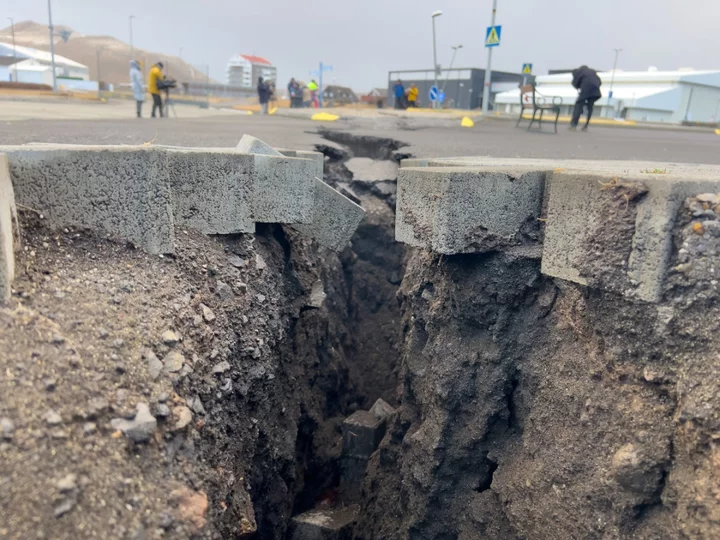
Iceland volcano – live: Experts reveal exact location for ‘likely’ eruption as magma flow continues
Almost 100 earthquakes shook Iceland from midnight today, as the country remains apprehensive about an imminent eruption. The strongest earthquake with a magnitude of 3.35 hit Vatnafjoll in South Iceland this morning at 5.56am, report the Icelandic Met Office. Yesterday night a seismic swarm started around the dike intrusion just north of the evacuated town of Grindavik. The Icelandic Met Office continues to warn of the “persistent likelihood of an imminent eruption”. In its latest update, the forecaster said there were around 100 earthquakes on Monday, with a “swarm” near the town which lasted just over an hour before midnight. A fortnight ago, Grindavik was evacuated after magma-induced seismic activity tore vast chasms through the streets of the town. While hundreds of earthquakes are still hitting the surrounding area daily, “seismic activity continues to decrease”, said the Icelandic Met Office, adding: “The likelihood of an imminent volcanic eruption diminishes with time.” However, one civil protection official told theThe Independent “It is still dangerous here ... I have never seen anything like it before. Usually we will have a few minutes warning to get out, but with the weather like it is today, we have even less.” Read More What to do with Grindavík: Has Iceland’s #1 selfie spot just emerged out of the ground? Is it safe to travel to Iceland? Your rights if you have a holiday booked Every resident of an Icelandic town was evacuated due to a volcano. Daring rescuers went back to save the pets
2023-11-29 15:48
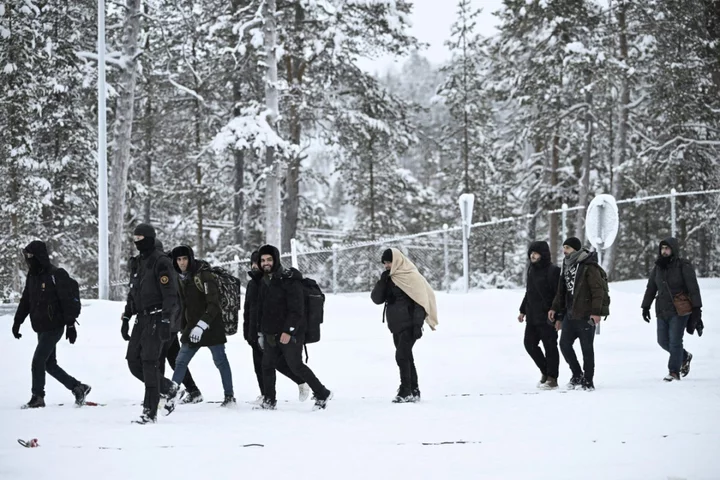
Russia-Ukraine – live: Finland closes 830-mile eastern border as Kyiv suffers another drone attack
Finland has announced it will close its last remaining border crossing with Russia amid concerns that Moscow is using migrants as part of “hybrid warfare” to destabilise the Nordic country following its entry into NATO. “The government has decided to close all the crossing points on the entire (830-mile) eastern border,” prime minister Petteri Orpo told reporters, saying Finland faced an “exceptional” situation that the government blames on Moscow for orchestrating. The Kremlin has denied encouraging migrants to enter Finland and says it regrets the Finnish border closures. It comes as multiple drones were fired towards Kyiv on Tuesday evening, causing air raid sirens to go off and sending civilians down into the bomb shelters. A Ukrainian monitoring group announced the presence of a handful of drones at around 9pm local time heading towards southern regions of Kyiv Oblast. Russia appears to have stepped up its assault on Ukrainian hubs hundreds of miles from the frontline in the last fortnight. Last winter, a similar trend occured as Russia tried to destroy critical infrastructure across the country. Read More Ukraine spy chief’s wife treated for metal poisoning as Putin rants at West for ‘plundering’ Russia Ukraine spy chief's wife undergoes treatment for suspected poisoning with heavy metals Ukrainian emergency workers tow ambulance from snow as storm kills at least five
2023-11-29 14:27
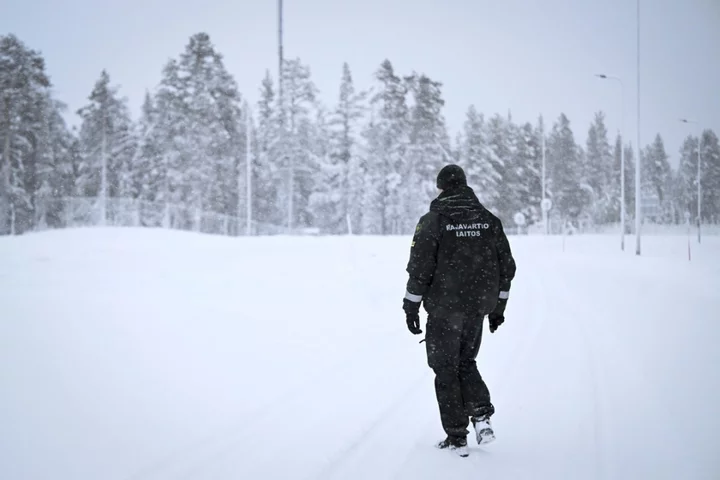
Finland plans to close its entire border with Russia over migration concerns
Finland will close its last remaining road border with Russia due to concerns over migration, Prime Minister Petteri Orpo said Tuesday, accusing Moscow of undermining Finland's national security. Finland already closed seven of its eight of the checkpoints along its long border Russia this month following a surge in arrivals of migrants from the Middle East and Africa. The government accuses Moscow of ushering the migrants toward the Finnish border. “The government has decided to close the entire eastern border," Orpo told reporters, saying the country faced an "exceptional" situation. “We don’t accept any attempt to undermine our national security," he said. Finnish authorities say about 900 migrants crossed the border from Russia this month, significantly more than normal. It has accused Russia of trying to create a migration crisis in Finland following the Nordic nation's entry into NATO this year. Interior Minister Mari Rantanen said the last border crossing for vehicle traffic that remains open, Raja-Jooseppi in Finland's Arctic north, would close at midnight Wednesday. A railway crossing between the two countries remains open but for cargo traffic only. Read More Ukraine war: Finland closes 830-mile eastern border as Kyiv suffers drone attack Climate contradictions key at UN talks. Less future warming projected, yet there's more current pain US gas prices have fallen or remained steady for 10 weeks straight. Here's why
2023-11-29 14:17
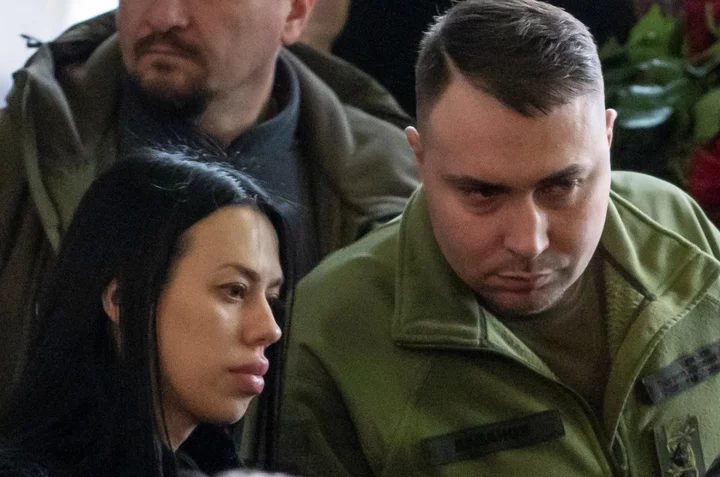
Ukraine spy chief’s wife treated for metal poisoning as Putin rants at West for ‘plundering’ Russia
The wife of Ukraine’s intelligence chief has been diagnosed with heavy metals poisoning and is undergoing treatment in hospital, it emerged on Tuesday. Meanwhile, deadly winter weather has hit the front lines of the conflict with Russia. Marianna Budanova is the wife of Kyrylo Budanov, the head of Ukraine’s military intelligence agency known by its local acronym GUR. Her condition was confirmed to AP by Andriy Yusov, the agency’s spokesman. He did not provide more details about the alleged poisoning, nor did he say if it was believed to have been intended for Mr Budanov or whether Russia was thought to be behind it. Earlier this year, he told Ukrainian media that the military intelligence chief had survived 10 assassination attempts carried out by the Russian state or federal security services. There was no immediate comment from the Russian government, which has long been suspected of poisoning opponents. The exact nature of the heavy metals that caused the poisoning has not been made public. However, local media said the metals were not used domestically or in military equipment, so the GUR representatives presume the poisoning was carried out intentionally, possibly through food or drink. Several GUR personnel were also diagnosed with the same poisoning, according to the newspaper Ukrainska Pravda. More than 100,000 people were still without power on the Crimean peninsula and some still had no water supply, the Russia-installed governor said on Tuesday, after a winter storm that brought blizzards from Bulgaria, Romania and Moldova across Ukraine and into central Russia. President Volodymyr Zelensky said at least five people died in the Odesa region of southern Ukraine, and that engineers were working to restore electricity. Crimea, which was annexed from Ukraine by Russia in 2014, is a key military and logistics hub for Russia as it pursues its war in Ukraine. The damage caused by the storm affected “the tempo of military operations along the frontline in Ukraine” but has not stopped military activity entirely, the Institute for the Study of War (ISW) said. In the Vologda region, about 310 miles northeast of Moscow, more than 10 days worth of snow – about 25cm (10in) – fell in one day. The Moscow region was also blanketed with snow, piling drifts up to 25cm deep. Meanwhile, Vladimir Putin has cast Moscow’s military action in Ukraine as an existential battle against purported attempts by the West to destroy Russia in a ranting speech. Mr Putin, who has been in power for more than two decades, is expected to declare his intention to seek another six-year term in a presidential election next March. “We are defending the security and wellbeing of our people, the highest, historical right to be Russia - a strong, independent power, a country-civilisation,” Mr Putin said, accusing the US and its allies of trying to “dismember and plunder” Russia. “We are now fighting for the freedom of not only Russia, but the whole world,” Mr Putin said. Associated Press contributed to this report Read More Fake babies, real horror: Deepfakes from the Gaza war increase fears about AI's power to mislead Greece pushes back against claims its leader broke assurances over Elgin Marbles Ukraine spy chief's wife undergoes treatment for suspected poisoning with heavy metals Baltic nations' foreign ministers pull out of OSCE meeting over Russian foreign minister attendance Cameron to urge Nato allies not to waver in support for Ukraine Greek officials angry and puzzled after UK's Sunak scraps leaders' meeting over Parthenon Marbles
2023-11-29 03:24
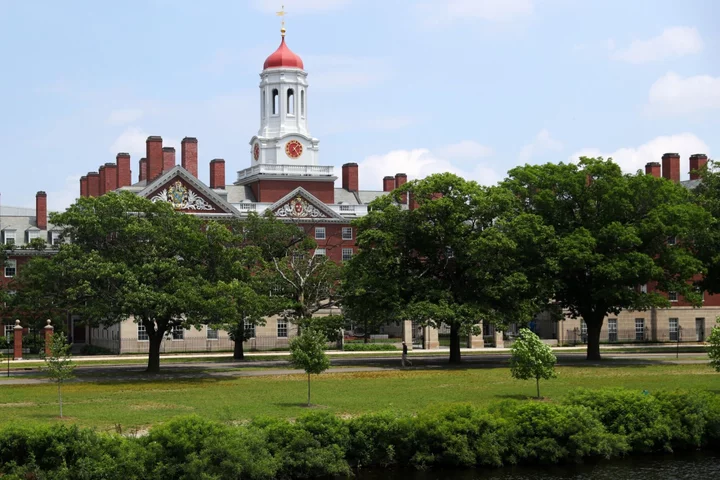
Harvard, Penn, MIT Presidents Called Before Congress on Antisemitism
The presidents of Harvard University, the University of Pennsylvania and the Massachusetts Institute of Technology will be called
2023-11-28 23:29

Hunter Biden Offers to Testify Publicly on GOP Accusations
Hunter Biden offered to testify publicly in response to Republican demands he answer questions about his business dealings.
2023-11-28 22:46
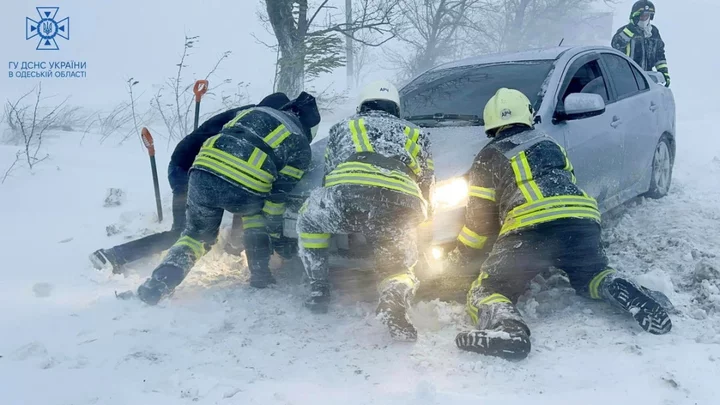
At least nine dead as Ukraine and Russia hit by powerful snow storms
At least nine people have died due to extreme weather conditions as a winter storm lashed parts of Russia and Ukraine, knocking out power from hundreds and thousands of households. The severe cold struck war-torn Ukraine at a time when thousands of both Russian and Ukrainian troops were engaged in intense fighting in the eastern towns near the Black Sea almost 22 months into Vladimir Putin's invasion. Kyiv fears Moscow could attack its power grids with air strikes this winter. The "storm of the century" killed at least four people in Russia and occupied Crimea after it struck the southern part of the country over the weekend. Dagestan, Krasnodar and Rostov, as well as the occupied Ukrainian territories of Donetsk, Lugansk, Kherson, Zaporizhzhia and Crimea have been struggling with the violent weather conditions, the authorities said. At least 1.9 million people were affected by power cuts in Russia, according to energy minister Nikolay Shulginov. In Ukraine, at least five people were killed and almost 1,500 towns and villages were left without power after storms dumped up to 10 inches of snow in some places. "Unfortunately, as of now, there are some deaths. The highest number is in the Odesa region - five people," Ukrainian president Volodymyr Zelensky said in his nightly video address. Schools were ordered to shut, while traffic was halted on 10 highways. Southern Odesa, the Mykolaiv regions, and central Kyiv were the worst affected places, with initial power cuts reported in 40,000 homes in the capital region. Ukraine is likely to be hit with more snow and rain on Tuesday, according to forecasters. Nearly 2,500 people were rescued following a snowstorm in Odesa, local governor Oleh Kiper said. About 849 vehicles have been towed out, including 24 buses and 17 ambulances, he announced on Telegram, adding that all those trapped by the snow since the start of the snowstorm had now been rescued. On Monday evening, the boiler facility in Odesa, where a 100-metre pipe broke and fell on Sunday, resumed operations. Huge waves crashed over beachside areas of the Black Sea coast, killing one person. One man, who "went out to look at the waves" died in the Russian-annexed Crimean peninsula, said Oleg Kryuchkov, an adviser to the region's Russian-installed governor. Vladimir Konstantinov, a Crimean lawmaker, said the peninsula had experienced an "armageddon"-like scenario. "Old-timers can't remember this kind of wind and waves," he added. In the resort cities of Sochi and Anapa, one person died and several people were injured when hundreds of trees were blown down. In neighbouring Moldova, four people were reported dead during the cold snap that hit the region over the weekend. Two dead bodies were recovered from inside a car buried in a snowdrift in the southeastern area of Coscalia and another outside the capital. Ukraine's border service said that two border crossings in the Odesa region to Moldova reopened after a temporary suspension on Sunday, but traffic conditions remained difficult. Read More Russian court extends detention of Wall Street Journal reporter Gershkovich until end of January Germany is having a budget crisis. With the economy struggling, it's not the best time Russia-Ukraine war live: Putin resorts to ‘energy terrorism’ as snow hits Odesa Chechen warlord Kadyrov offers Putin 3,000 more fighters amid heavy Russian losses Russian forces encircle Avdiivka and ‘ready to storm city’ ICC prosecutors halt 13-year Kenya investigation that failed to produce any convictions
2023-11-28 18:18
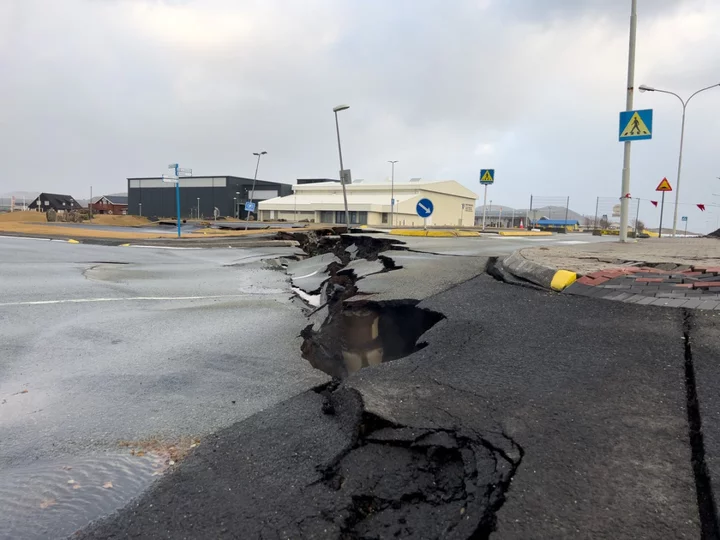
Iceland volcano – live: Almost 100 earthquakes strike in seismic swarm during eruption fears
Almost 100 earthquakes shook Iceland from midnight today, as the country remains apprehensive about an imminent eruption. The strongest earthquake with a magnitude of 3.35 hit Vatnafjoll in South Iceland this morning at 5.56am, report the Icelandic Met Office. Yesterday night a seismic swarm started around the dike intrusion just north of the evacuated town of Grindavik. The Icelandic Met Office continues to warn of the “persistent likelihood of an imminent eruption”. In its latest update, the forecaster said there were around 100 earthquakes on Monday, with a “swarm” near the town which lasted just over an hour before midnight. A fortnight ago, Grindavik was evacuated after magma-induced seismic activity tore vast chasms through the streets of the town. While hundreds of earthquakes are still hitting the surrounding area daily, “seismic activity continues to decrease”, said the Icelandic Met Office, adding: “The likelihood of an imminent volcanic eruption diminishes with time.” However, one civil protection official told theThe Independent “It is still dangerous here ... I have never seen anything like it before. Usually we will have a few minutes warning to get out, but with the weather like it is today, we have even less.” Read More What to do with Grindavík: Has Iceland’s #1 selfie spot just emerged out of the ground? Is it safe to travel to Iceland? Your rights if you have a holiday booked Every resident of an Icelandic town was evacuated due to a volcano. Daring rescuers went back to save the pets
2023-11-28 17:29
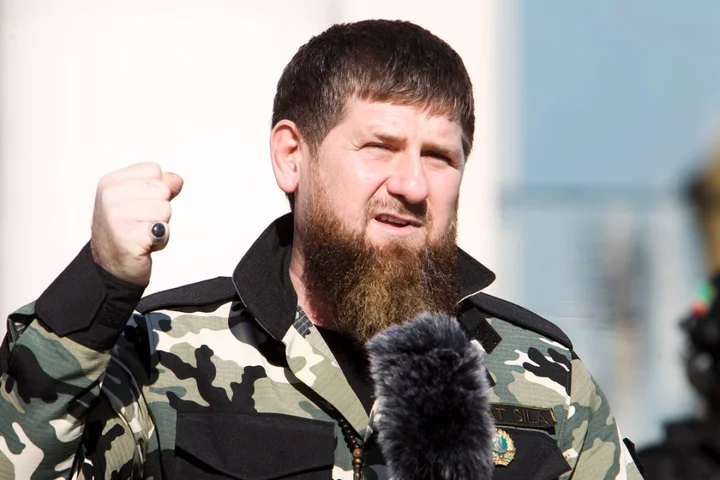
Chechen warlord Ramzan Kadyrov offers Putin thousands more fighters amid heavy Russian losses in Ukraine
Chechen leader Ramzan Kadyrov said another 3,000 of his men were ready to join Russia's invasion of Ukraine amid reports of heavy losses for Vladimir Putin's troops in their push to capture an eastern city. Mr Kadyrov, a self-proclaimed "foot soldier" of the Russian president, said his fighters were ready to form new units of the Russian defence ministry and the Russian National Guard forces. His statement comes amid reports of Russian troops suffering “some of the highest” casualties of the conflict so far amid intense fighting in eastern Ukraine. The UK’s Ministry of Defence (MoD) on Monday said Russia was losing an average of 931 men a day this month, largely in the fight for the town of Avdiivka. Until now the heaviest casualties suffered in a month by Russia – according to Ukrainian data – was March this year, with an average of 776 losses per day during the push to capture Bakhmut. "They (the Chechen fighters) have the best equipment and modern weapons," Mr Kadyrov claimed on Telegram. "In addition, the guys are highly combative and very motivated to achieve results," he added. Mr Kadyrov had earlier sent 26,000 fighters to the battlefield since the beginning of Russia's war in Ukraine last year. According to reports, 12,000 were volunteers at that time and 7,000 of them were actively fighting. These claims about Chechen deployments to Ukraine could not be independently verified, and Reuters reported that several Chechen armed formations have fought on the side of Kyiv against Russia since Mr Putin launched his invasion in February last year. Mr Kadyrov also claimed last year to have sent his three teenage sons to fight in Ukraine, saying he wanted them to "show themselves in a real battle". "Soon they will go to the front line and will be on the most difficult sections of the line of contact," he had said in a Telegram post in 2022. Mr Kadyrov enjoys wide leeway from Mr Putin to run Chechnya ruthlessly as his personal fiefdom, but he angered pro-Kremlin hardliners in September by praising his 15-year-old son for beating up an ethnic Russian prisoner in Chechen custody. Mr Kadyrov met the Russian president in September amid speculations over his health, with rumours swirling that he was either dead or in a coma. He later clarified that he was fine and was travelling to a hospital in Moscow to visit a "sick uncle". Earlier this month Mr Kadyrov said that a large group of Russia's former Wagner mercenaries, who had played a prominent role in some of the fiercest fighting in Ukraine before their group fell into disarray after a brief mutiny against the Russian defence establishment, had also started training with special forces from Chechnya. Mr Kadyrov, 47, has mused publicly about handing over power at some point and appears to be actively working to raise the profile of his three teenage sons, the eldest of whom was photographed with Mr Putin in the Kremlin in March.
2023-11-28 14:53
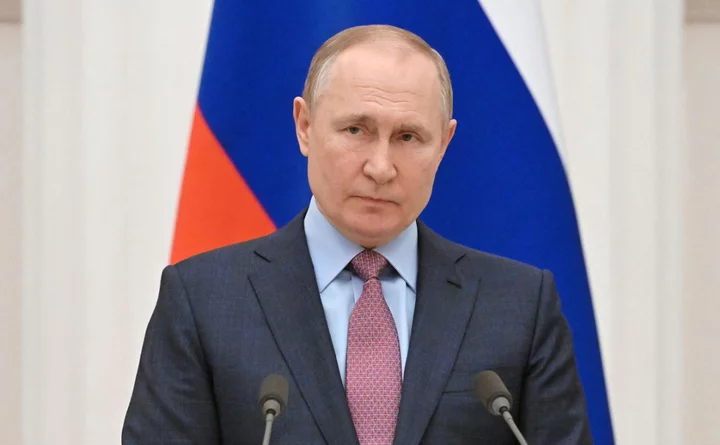
Russia-Ukraine war – live: Putin signs record boost to military spending amid huge losses on battlefield
Vladimir Putin has signed a record national budget aimed at boosting the military amid staggering losses on the battlefield. After the budget was passed by the lower house of the parliament, speaker Vyacheslav Volodin said it was developed specifically to fund the military and to mitigate the impact of international sanctions imposed after Russia sent troops into Ukraine in February 2022. Part of the Russian budget is secret as the Kremlin tries to conceal its military plans and sidestep scrutiny of its operation in Ukraine. But independent business journalists Farida Rustamova and Maksim Tovkaylo said this month that around 39 per cent of all federal spending will go towards defence and law enforcement in 2024. It comes as data published by the UK Ministry of Defence, provided by Ukraine’s General Staff, showed the number of Russians casualties had risen to an average 931 a day this month. UK Defence Secretary Grant Shapps said: “Putin is stepping up his invasion - senselessly sending more Russians to die than at any time since the war began.” Read More Russian forces encircle Ukraine’s Avdiivka and ‘ready to storm city’ after months-long offensive Russian supermarkets are full of fruit, vegetables, cheese and meat. But shoppers can’t afford any of it A Dutch museum has sent Crimean treasures to Kyiv after a legal tug-of-war between Russia, Ukraine Ukraine and the Western Balkans top Blinken agenda for NATO foreign ministers meeting in Brussels
2023-11-28 13:58
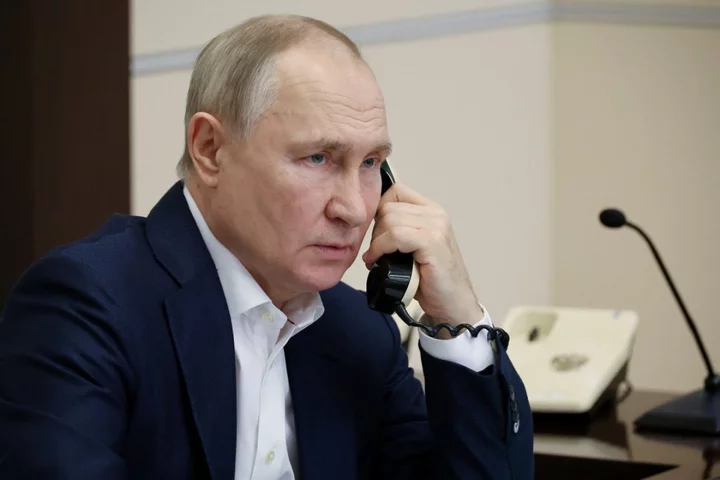
Dead, wounded or AWOL: Secret recordings reveal Russian soldiers trying to get out of the Ukraine war
In audio intercepts from the front lines in Ukraine, Russian soldiers speak in shorthand of 200s to mean dead, 300s to mean wounded. The urge to flee has become common enough that they also talk of 500s — people who refuse to fight. As the war grinds into its second winter, a growing number of Russian soldiers want out, as suggested in secret recordings obtained by The Associated Press of Russian soldiers calling home from the battlefields of the Kharkiv, Luhansk and Donetsk regions in Ukraine. The calls offer a rare glimpse of the war as it looked through Russian eyes — a point of view that seldom makes its way into Western media, largely because Russia has made it a crime to speak honestly about the conflict in Ukraine. They also show clearly how the war has progressed, from the professional soldiers who initially powered Vladimir Putin’s full-scale invasion to men from all walks of life compelled to serve in grueling conditions. “There’s no f------ ‘dying the death of the brave’ here,” one soldier told his brother from the front in Ukraine’s Kharkiv region. “You just die like a f------ earthworm.” The prospect of another wave of mobilization lingers, even as Moscow has been trying to lure people into signing contracts with the military. Russia’s annual autumn conscription draft kicked off in October, pulling in some 130,000 fresh young men. Though Moscow says conscripts won’t be sent to Ukraine, after a year of service they automatically become reservists — prime candidates for mobilization. The AP verified the identities of people in the calls by speaking with relatives and soldiers — some of whom are still at war in Ukraine — and researching open-source material linked to the phone numbers used by the soldiers. The conversations, picked up in January 2023 — some from near the longest and deadliest fight in Bakhmut — have been edited for length and clarity. Names have been omitted to protect the soldiers and their relatives. The voices in these calls are of men who didn’t or couldn’t flee mobilization. Some had no money, no education and no options. Others believed in patriotic duty. One worked in a meat processing plant, cutting bone. Another worked at a law firm. A third, who worked as a roofer and later at a supermarket company, had a string of debts and had defaulted on his utilities payments, records show. It is hard to say how representative these calls are of sentiment in Russia’s armed forces, but their desperation is matched by a spike in legal cases against soldiers in Russia who refuse to fight. What’s happening in Ukraine is “simply genocide,” the soldier in Kharkiv told his brother. “If this s--- doesn’t stop, then soon we’ll be leading the Ukrainians to the Kremlin ourselves,” he said. “This is just a huge testing ground, where the whole world is testing their weapons, f--- it, and sizing up their d----,” he went on. "That’s all.” But there are other voices, too, of men who remain committed to the fight. “As long as we are needed here, we will carry out our task,” a soldier named Artyom told AP from eastern Ukraine at the end of May, where he’d been stationed for eight months without break. “Just stop asking me these stupid questions.” The Kremlin and Russian Ministry of Defense did not respond to requests for comment. SOLDIER: ‘BONES, TEARS — ALL THE SAME, THEY ARE THE SAME AS WE ARE’ When he finally got to go home, it came at a terrible price: his brother’s life. Nicknamed “Crazy Professor” because of his disheveled hair, he was swept up in the first days of Russia’s September 2022 draft. The soldier said he was assured that he wouldn’t see combat and would get to go home every six months. Neither turned out to be true. After a few weeks of training, the Professor was sent to the front line near Bakhmut as a mortarman. He wanted out almost immediately. He was ill-equipped, at least compared to the well-camouflaged Wagner soldiers wandering around. “They have night vision and automatic rifles with cool silencers. I have an automatic rifle from 1986 or hell knows what year,” he told his brother in a January phone call. It was his job to aim, but the Russian army’s coordinates were so sloppy that soldiers ended up killing each other. The Professor said his commander instructed them not to kill civilians, but who was a civilian and who was a combatant? Even a kid could carry a grenade, he told his brother. Where did the mortars he fired land? Had he killed children? The worst was when he was out with young guys in his unit. There was just a strip of woods between them and the Ukrainians. “I imagined that there, on the other side, there could be young people just like us. And they have their whole lives ahead of them,” he told AP in June. “Bones, tears — all the same, they are the same as we are.” The Professor told himself he didn’t really have a choice: Either fire the mortar or face criminal charges and end up in a pit or a prison. “If you don’t like something, if you refuse to do something, you’re considered a refusenik," he told AP. "That is, you’re a ‘500’ right away. … So we had to follow orders. Whether we wanted to or not.” The Professor never thought he’d be a refusenik one day too. ___ The Professor: The worst thing is that there might even be children there, you know. Brother: And what can you do. … You have your orders. … It seems to me that if it had been voluntary, you wouldn’t have gone. The Professor: You know, I’m glad about that. Plus, we did such a good job that they gave us a car. The downside is, you know, how many lives were ruined for the sake of a car? Brother: Not of your own free will. The Professor: I’m already so tired. Brother: I believe it. Time to come home. I wish you could come home. Not so that you could home but so that all of this could be over already. ___ In the spring, as the Professor’s brothers drove down a road outside their hometown in Russia, a car made a U-turn into the side of their vehicle, sending it spinning as a semi bore down on them. One brother was killed. Another survived but now cannot walk, family members told AP. Desperate to go home to bury his brother, the Professor said he got approval from his commander for a 10-day leave. Military police in Russian-controlled territory in Luhansk let him through, he said, and he paid for his own taxi ride home. Once he got back to Russia, however, he was told he didn’t have the right paperwork. Not long after the funeral, the Professor got a message from his commanding officer: “What is happening there? Are you going to come back or stay there?” “I’ll collect the documents, and then we’ll decide everything,” he wrote back. Two hours later, around midnight, his commander responded: “I’m reporting you as AWOL, unauthorized abandonment of the unit. It was nice fighting together.” Now he faces up to 10 years in prison. He hired a lawyer. Months into a 10-day leave, he can’t even apply for an extension to legalize his stay and help his family because he doesn’t have the right documents. He said his brother can move around on his arms and mostly get into his wheelchair by himself, but can't function independently. People from the military came to his home, he said. Terrified they’d arrest him if he went outside, he passed documents attesting to the dire state of his family’s health to them through the window. His lawyer told him to look on the bright side. “You are the only, well, how do I put this … at least, you’re the only healthy person here.” His mother is at the end of her endurance. “I write everywhere, I call everywhere, too. Because he was told that he has to return to his unit,” his mother told AP. “But how can he leave his brother? I have no one.” Now, the Professor has visions of dead people. They stare back at him. He can almost hear them walking nearby. Sometimes he bolts awake at night, sweating, or dives under the covers at the sound of a whistle. He wants his old life back, that sweet time he had with his wife and baby. He has picked up some roofing work at construction sites, and his neighbor proposed a new side job: digging graves. ARTYOM: 'EVERYBODY'S F------ MAD, F------ GLOOMY AS HELL' Artyom left behind a string of debts in Russia. Things got even worse in Ukraine, where it was so cold he couldn’t wash his underwear and his lighter kept freezing. “It’s not like I’m having any f------ fun here, day in day out. It’s been f------ four months already,” he told his wife in January. “Everybody’s f------ mad, f------ gloomy as hell.” It was New Year’s Day, and the Russians were getting bombarded by Ukrainians and not even firing back, he said. “Yesterday we were f------ bombarded, for f---’s sake, we didn’t even get a single shell out, not a single f------ shell,” he told his wife. The war seemed senseless to him. Why wasn’t Putin satisfied with Crimea? What business did they have trying to take Kharkiv and Kyiv? Why was everyone lying about how great things were at the front? No one was saying the one thing he wanted to hear: that he could go home. ___ Artyom: Yesterday we were listening to the radio and someone f------ said, “the situation with mobilized soldiers is f------ wonderful.” I don’t know who the f------ idiot is who said that. “Only five thousand people died.” Wife: Mhm. Of course. Artyom: F------ s---heads. I think half of them are probably gone at this point. Wife: Right. Artyom: Five thousand people my ass. ___ Artyom doesn’t have much sympathy for draft dodgers and deserters, though he can see the wisdom in making a run for it. “That’s what you have to do, given the chance,” he told his wife. “This is not the best f------ place to be … But then they’re gonna say you’re a f------ freak who ran away. I don’t f------ need that.” He told her he’ll stay put and follow orders. “If God wills it so that you’re gonna f------ die, you’re gonna f------ die, can’t do much about it.” The AP reached Artyom by phone at the end of May. He was still in eastern Ukraine, where he’d been serving for eight months without break. Artyom said he’d been “a little worn out mentally” when he was speaking with his wife. He said he loved his family before the war and loved them even more now. He regrets he didn’t spend more time with them. “I have to save the guys who are with me in the trenches — and myself,” he said. “That’s what I want to do. And to put down the Ukrainians faster and go home.” ROMAN: ‘I ALREADY FEEL MORE PITY SHOOTING A BIRD THAN A PERSON’ After two months on the front lines north of Bakhmut, Roman had some advice for his friend and former colleague back in Russia: Avoid this war any way you can. “I’m telling you honestly, if there’s even a slight chance, get exempted from service. But if the summons comes for mobilization, f--- it to hell. Join Wagner or the contract soldiers, or wherever you can. God forbid the mobilized. The mobilized are the lowest.” Roman explained that professional contract soldiers are taken care of: They get to go on leave, launder their clothes and bathe. They don’t have to struggle for food and water. Meanwhile, mobilized soldiers like him are shoved in trenches with men from all walks of life, some of whom don’t even know how to hold guns. They never get to leave, and their commanders — “weak wusses,” he says — aren’t much help. He’s had to buy night vision goggles with his own money. There’s not enough to eat and no clean drinking water. Soldiers are licking at snowflakes and scooping up rainwater to drink. He said he lost 30 kilos (over 60 pounds). The diarrhea hasn’t helped. “It came to the point that there were puddles, it had rained, and the guys scooped up all the puddles and drank,” Roman told his friend. “Snow fell, f------ s---, and the snow didn’t even reach the ground, the guys caught it and ate it.” When he arrived in Ukraine in November 2022, Roman was part of a unit of 100 men. By early January, about a third were gone. Roman said he’s been lucky twice. Once he got food poisoning and stayed back while a group of scouts went out. They never came back. Another time, he was carrying water and tripped and fell just as a shell landed, killing others nearby. Surrounded by a horseshoe of Ukrainian troops, Roman said it was like being on the tip of a toilet seat, in constant fear that their supply lines, thin as they were, would get cut off. Roman had to scoop a man’s guts back into his body — an act that didn’t save the guy’s life. Another time, he went out to defecate in a field, and tanks started firing around him. He just kept squatting till he was done. After two months of living like this, so scared you’ll shoot at the softest sound in the dark, even the strongest minds started to fray. “We survive because we are on edge all the time,” he said. “Even guys from our own side don’t come close, especially at night. When we are on duty, we warn everyone that we will shoot at anything that rustles.” Roman said his cousin was killed by a shell that took out a dozen soldiers. His family managed to get his body — or at least half of his body — back to Russia, but the other 11 soldiers lay unclaimed in Ukraine. It wasn’t just the killing that did people in, it was the sense that they’d been forgotten. ___ Roman: Our group is made up of guys who are sufficiently strong, morally, and guys like that. It was the first wave. Guys came together who are sufficiently patriotic, roughly speaking, who knew what it was to fight. After two months, they start to lose it. For many of them, their psyche was broken. Friend: Yeah, I understand, all of the killing of course. Roman: Yes, the killing is everywhere. A f------ lot of corpses. Some were stabbed with a knife, but that’s not the point. Psyches are not broken because of this. These are people who are professionals, it’s our national army, these professionals come to our position. ‘F---, it’s f----- up here.’ They turn around and leave. That is, they are replaced, they have rotation, they are given leave, their clothes are washed and ironed, they wash in the bathhouse, they have no problem with food, they have no problem with water. It’s not like this for us. It once came to the point that there were puddles, it had rained, and the guys scooped up all the puddles and drank. ___ The “depressing, horrible” panic that attacked him at the beginning of his tour has subsided. The calls home help. One night, Roman got pulled into a special mission. They snuck into a Ukrainian dugout, knives drawn, hacked up a bunch of men and captured a Ukrainian officer for questioning. Death was everywhere, on both sides of the front. “F---, I already feel more pity shooting a bird than a person," Roman told his friend. Contacted by the AP, both men declined to comment. ANDREI: ‘THE MOBILIZED ARE NOT CONSIDERED HUMANS’ After four months in Ukraine, Andrei concluded that his life meant nothing to Moscow. Called up for military service from a small town in Russia’s far east, he soon found himself in eastern Ukraine’s Donetsk province, on the southern approach to Bakhmut. Andrei’s unit was taking heavy losses, and no one was even shooting back at the Ukrainians, he said. People were dying from friendly fire. Mobilized men like him were being forced to sign contracts. “The mobilized are not considered humans,” he told his mother. “No one gives a damn about us. They think that for 200,000 (rubles) we should die here.” Mutiny was in the air. ___ Andrei: Our boys are dying for nothing. It’s nonsense, I tell you. This is not a war at all. When I come back, I’ll tell you what’s going on here. It’s all bull----. I’m telling you, our boys are dying, going 300, and no one even shoots back. It’s all nonsense. Our artillery is hammering our own dugouts, not theirs. What is that? Mother: What for? Andrei: They, like, miss the mark. … Here, if they don’t get you, your own will. Mother: (Inaudible) Andrei: I’m telling you, you just start going nuts here, like everything pisses you off. Because you can’t do s--- about it. Nobody gives a s---. It’s a half year and that’s it. F--- them. If they don’t relieve us, if they don’t pull us out, the whole company will just walk away. They can’t put a crowd of 100 people on trial. Mother: They have no right to keep you longer. Andrei: No one gives a damn here. We were told the other day that they forgot about us a little bit here. But they didn’t just forget about us — they f----- us. ___ Mobilized soldiers like him are treated worst of all, he told his mom. They’re not allowed to leave — even if they get injured — because commanders fear they’ll never come back. ___ Andrei: Well, our guys are getting killed in droves. Mother: Judging by what I — Andrei: I’m telling you. In droves from our side. If a contract soldier is wounded, he’s sent home. If a mobilized soldier is wounded, they treat him, patch him up a bit, and tell him to go the f--- back, why the hell are you dodging? All in all, if you get sick here, you will not be sent home. They won’t give a damn, and you’ll die in this pit where you live in. You can’t get sick here at all. Mother: Better not get sick. (Inaudible) Andrei: This is how s--- works here. As long as you are useful, they like know who you are. And when you become useless, then nobody needs you. They forget about you. ___ He said the only reason he’s still alive is luck and regrets finding himself at war. “This is my only mistake in life,” he said. “I will not fall into the same trap twice.” “God gives you one chance,” his mother responded. “God willing, you’ll come home.” In September, Andrei’s mother told AP her son was home, keeping himself busy with his family and collecting pine cones from the taiga. She said she was born in Ukraine and her mother still lives there. She said it pains her that Ukraine is now filled with “traitors and fascists.” “I hate your current rulers,” she said. “Are you blind or stupid? Or can’t you see that there are no normal people? Or do you want your children to turn into monkeys, like in America? What is this? I don’t recognize my homeland, where I was born and went to school.” ___ AP reporters Lynn Berry in Washington and Alla Konstantinova in Vilnius, Lithuania, contributed to this report. Students from the Russian translation and interpretation program at Middlebury Institute of International Studies also contributed to this report. ___ More AP coverage at https://apnews.com/hub/russia-ukraine Read More Ukraine and the Western Balkans top Blinken agenda for NATO foreign ministers meeting in Brussels More than half a million people left without power in Crimea, Russia and Ukraine after huge storm North Korea restores border guard posts amid rising tensions over its satellite launch, Seoul says Three dead as first heavy snowfall and blizzards of winter hit eastern Europe Russia forced to move air defences from Kaliningrad to Ukraine front after losses Ukraine is shipping more grain through the Black Sea despite threat from Russia
2023-11-27 22:50
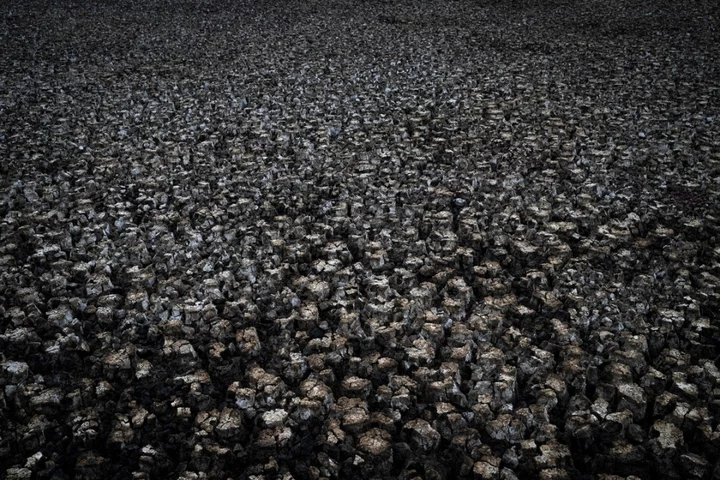
Spain announces a 1.4 billion-euro deal to help protect the prized Doñana wetland from drying up
National and regional authorities in Spain signed an agreement Monday to invest 1.4 billion euros ($1.5 billion) in areas around the treasured national park of Doñana in a bid to stop the park from drying up. Ecological Transition Minister Teresa Ribera said the plan was aimed at encouraging farmers to stop cultivating crops that rely heavily on water from underground aquifers that have been overexploited in recent years, damaging one of Europe’s largest wetlands. “This is an agreement with which we put an end to pressure on a natural treasure the likes of which there are few in the world,” Ribera said. Andalusia regional President Juan Moreno said farmers will receive financial incentives to stop cultivating and to reforest land in and around some 14 towns close to Doñana. He said farmers who wish to continue cultivating will receive less money but must switch to farming dry crops ecologically. As part of the agreement, Andalusia will cancel previously announced plans to expand irrigation near Doñana, a decision that UNESCO, the central government and ecologists criticized for putting more pressure on the aquifer. A UNESCO World Heritage Site and Biosphere Reserve, Doñana is a wintering site for half a million waterfowl and a stopover spot for millions more birds that migrate from Africa to northern Europe. Ecologists working in and near the park have long warned that its ecosystem of marshes and lagoons is under severe strain because of agriculture and tourism. The situation has been made worse by climate change and a long drought, along with record high temperatures. Andalusia recently announced a plan to allow the Doñana park to annex some 7,500 hectares (18,500 acres) by purchasing land from a private owner for 70 million euros. Doñana currently covers 74,000 hectares (182,000 acres) on an estuary where the Guadalquivir River meets the Atlantic Ocean on Spain’s southern coast. ___ Follow AP’s climate and environment coverage at https://apnews.com/hub/climate-and-environment Read More Elon Musk visits Israel to meet top leaders as accusations of antisemitism on X grow Tesla sues Swedish agency as striking workers halt delivery of license plates of its new vehicles Qatar is the go-to mediator in the Mideast war. Its unprecedented Tel Aviv trip saved a shaky truce
2023-11-27 21:46
You Might Like...
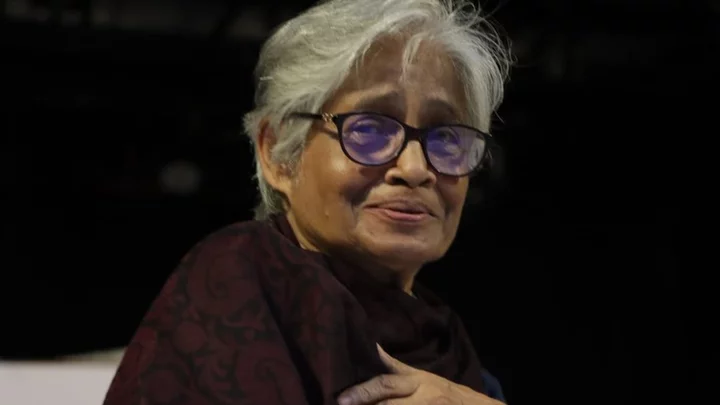
Same-sex hearing: The lesbian activist seeking marriage equality in India
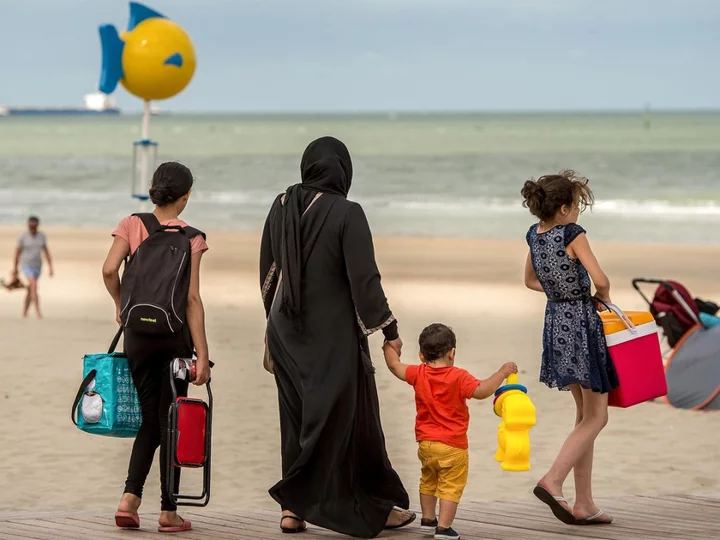
France set to ban Muslim students from wearing abaya in state schools

Pence accuses Trump, DeSantis and Ramaswamy of ‘appeasement’ over their isolationism
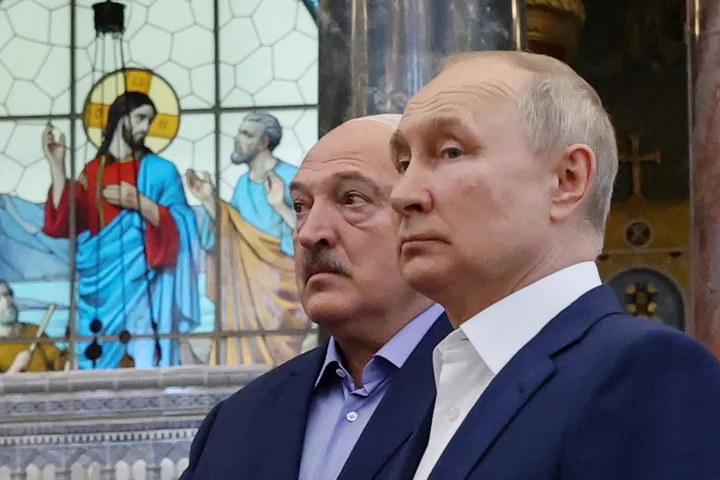
Putin ally Lukashenko calls for ceasefire in ‘stalemate’ Ukraine war: ‘No one can do anything’
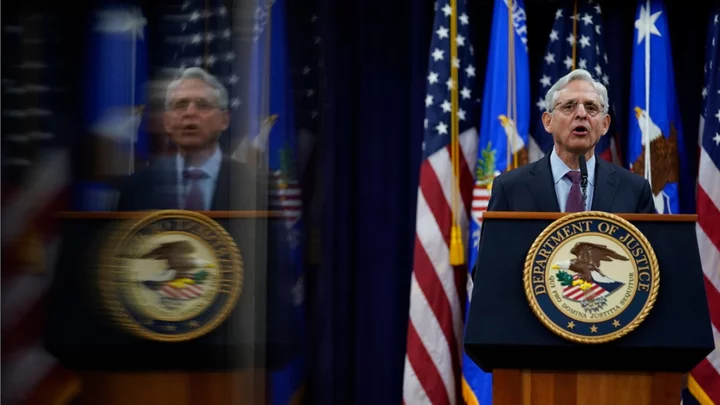
Prosecutor in Hunter Biden case is given special counsel status by attorney general

Trump ‘faces Jan 6 charges of conspiracy, obstruction and civil rights violations’
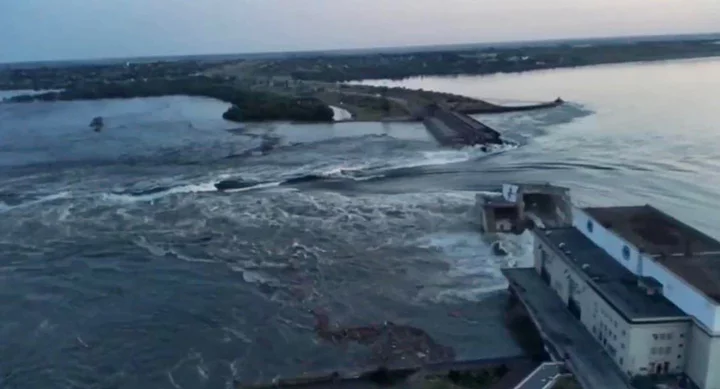
Mapped: The damage caused by Ukraine’s devastated dam
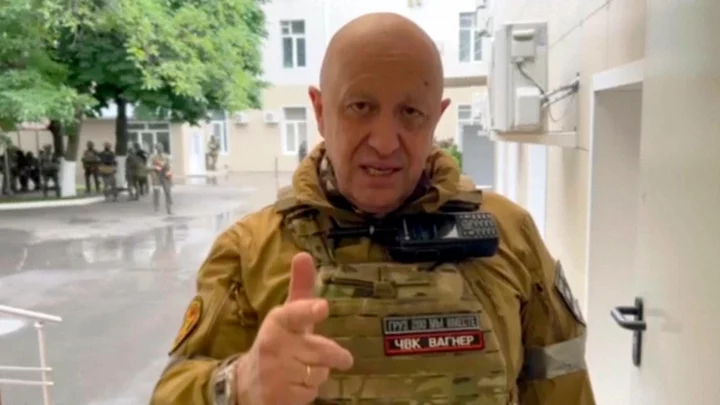
Russia-Ukraine war – live: Thousands of Wagner troops arrive in Belarus after failed Kremlin coup
